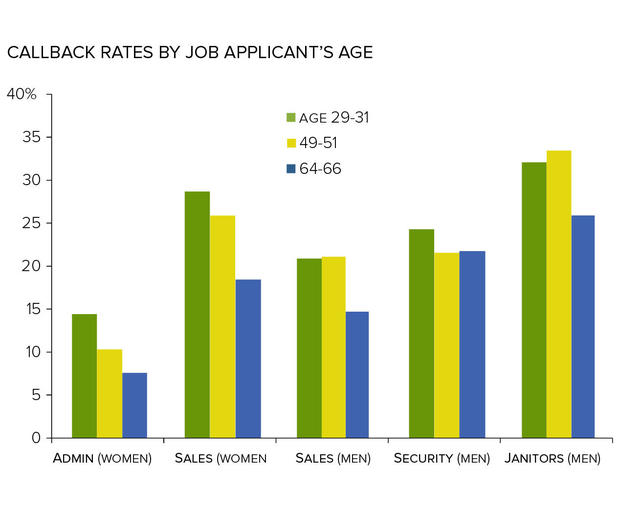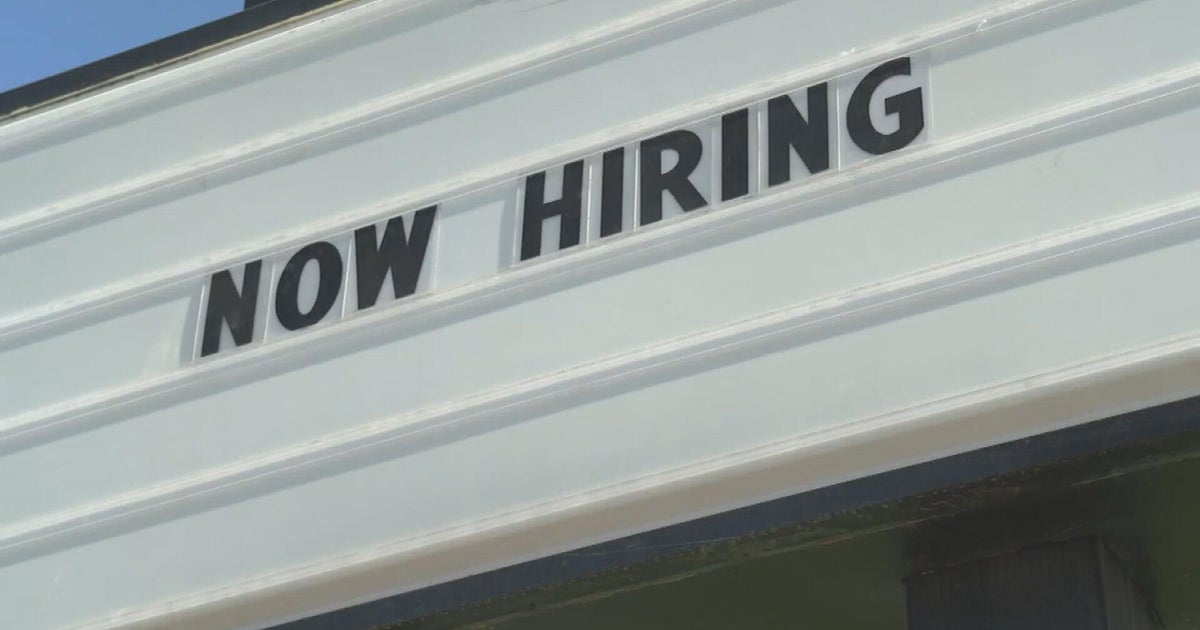Age discrimination is alive and well
A half-century has passed since the federal government enacted a law designed to protect workers from employment discrimination based on age. Yet one of the largest-ever studies on age discrimination in hiring has found that the problem persists, and it’s worse for women than for men.
Older job seekers often suspect they’re victims of age discrimination in hiring, but trying to prove it is another matter. Enter the San Francisco Federal Reserve, which in 2015 did a nationwide field test to determine whether, all things being equal, employers routinely favor younger applicants over older candidates. Its findings are outlined in the study released earlier this week.
As part of the experiment, researchers created resumes for phony job seekers with identical skills in three age groups: 29 to 31 for “young” applicants, 49 to 51 for “middle-aged” applicants and 64 to 66 for “older” applicants. They submitted appropriate resumes from each age group to ads for jobs in fields that have large numbers of low-skilled workers of all ages.
The study didn’t explore age discrimination in hiring for higher-skilled positions because researchers figured that “realistic responses to fictitious applications” were less likely in fields where employers may be more familiar with applicants.
In all, researchers applied on behalf of more than 40,000 “job seekers” to more than 13,000 positions in 12 cities across 11 states. They submitted only women’s resumes to listings for administrative assistant (or secretarial) positions and only men’s resumes for listings for janitorial and security jobs. They sent out same-sex triplets of resumes (with the only real difference being age) to listings for retail sales jobs.
“We chose fields that are pretty big and tend to have large numbers of older workers. It wouldn’t be surprising to find there is age discrimination for people trying to become NFL [National Football League] players,” quipped study co-author David Neumark, an economics professor at the University of California Irvine and visiting scholar at the San Francisco Fed.
The study’s findings probably won’t come as a shock to many older job seekers. For all five sets of applications, young and middle-aged “job seekers” had higher callback rates than did older ones, “consistent with age discrimination in hiring,” according to the study.
What’s more, older female “applicants” fared worse than their male counterparts. For instance, the callback rate for the oldest female “applicants” to administrative assistant jobs was 47 percent lower than the rate for women in the youngest age group. For retail sales jobs, the difference in callback rates for youngest vs. oldest female “applicants” was 36 percent -- compared to a 30 percent difference, by the same measure, for male “applicants” to sales jobs.
Why do older women appear to suffer disproportionately from age discrimination? It may have to do with what the late author and social critic Susan Sontag dubbed “The Double Standard of Aging.”
“There is some evidence that people are penalized for age because of looks, but the age penalty may be worse for women than for men,” said Neumark.
Either way, lingering age discrimination poses challenges on multiple levels. The world population is aging, straining pension systems across the West. In response, some policymakers are mulling stronger incentives for people to work longer. But such incentives aren’t likely to be very effective if older workers face higher barriers to getting and keeping jobs.
In the U.S., many boomers and Gen Xers may have no choice but to try to work longer than their parents or grandparents did, given the shrinking number of traditional defined-benefit retirement plans and inadequate savings. The Center for Retirement Research at Boston College estimates that 52 percent of U.S. households are at risk of having a lower standard of living in retirement.
“Age discrimination in hiring may be critical to whether older people can work substantially longer,” the study said, “because many seniors transition to part-time or shorter-term partial retirement or ‘bridge’ jobs at the end of their careers.”




